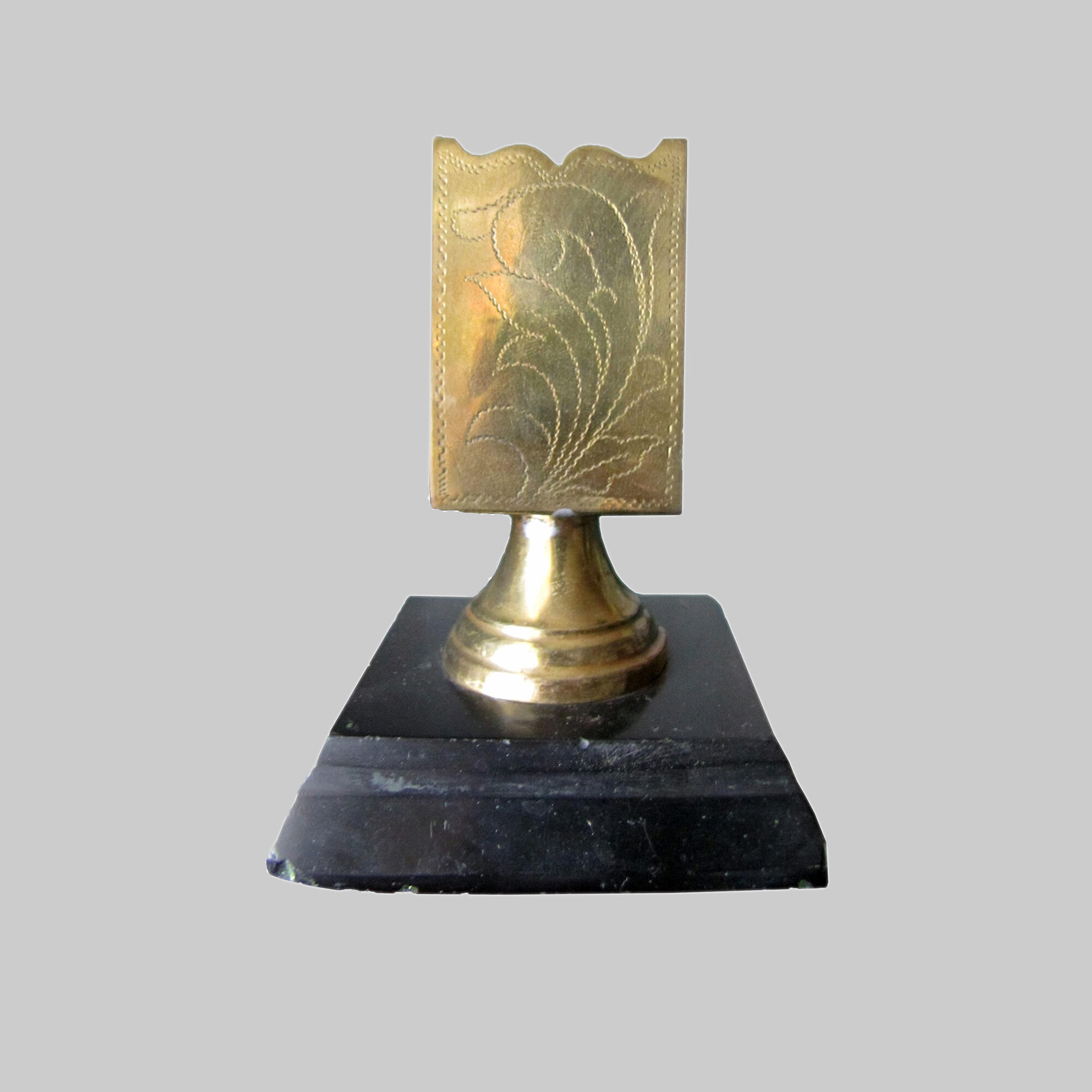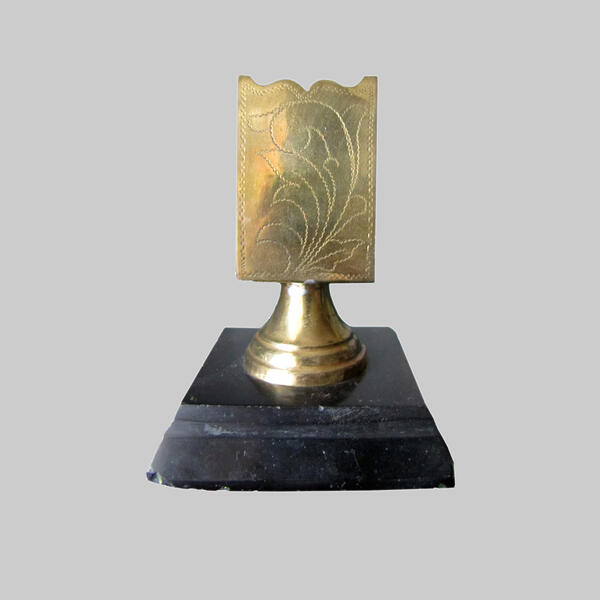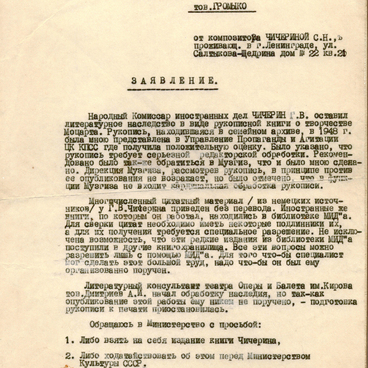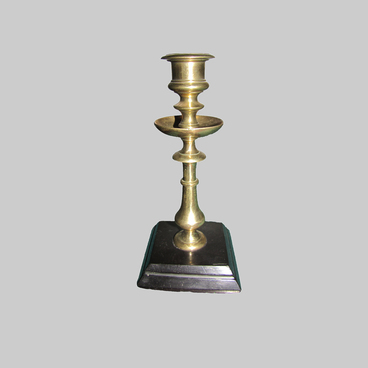A matchbox holder was part of the writing set, which also included: an inkwell, pencil holder, paperweight, candlestick, vase and bell.
A similar accessory was used to store matches on the writing table to light candles. First, boxes were placed between metal walls, then, when matches ran out, they were took out and changed to a new one. Even a child could cope with the task, since the upper edge of the holder is carved.
At the moment, the memorial exhibit can be seen in the room of Nikolay, brother of Georgy Chicherin. When the family moved to the house, the eldest son was 11 years old and he was preparing to enter the Tambov men’s gymnasium.
It is worth noting that a significant role in the education of the aesthetic views of children was played by their mother, Zhorzhina Chicherina. The Baroness was an educated woman with delicate taste, artistic talent and a sincere love of art.
Nikolay Chicherin studied diligently, was interested in literature, languages and chess. He could spend more than 5 hours in difficult games and discussions with opponents about the tactics of the board game. It is not surprising that the young man graduated from an educational institution in 1886 with a certificate of commendation and a gold medal. By the way, commemorative awards are also kept in the museum’s collection.
Playing music took a special place among the young man’s hobbies. He studied not only history and theory, but also knew how to play several musical instruments: flute and piano.
However, according to Nikolay Chicherin, only the violin possessed the ability to most clearly express the state of the human soul.
The relationship between the brothers, whose age difference was 7 years, remained warm throughout their lives. That was evidenced by their correspondence during the preparation of the book about Wolfgang Mozart who was an idol for both. In their letters, they recalled musical disputes and home “concerts” when they performed works in 4 hands. In addition, Nikolay Chicherin was one of the first to read the sketch, and then the finished version of the manuscript about the brilliant composer from Austria.
A similar accessory was used to store matches on the writing table to light candles. First, boxes were placed between metal walls, then, when matches ran out, they were took out and changed to a new one. Even a child could cope with the task, since the upper edge of the holder is carved.
At the moment, the memorial exhibit can be seen in the room of Nikolay, brother of Georgy Chicherin. When the family moved to the house, the eldest son was 11 years old and he was preparing to enter the Tambov men’s gymnasium.
It is worth noting that a significant role in the education of the aesthetic views of children was played by their mother, Zhorzhina Chicherina. The Baroness was an educated woman with delicate taste, artistic talent and a sincere love of art.
Nikolay Chicherin studied diligently, was interested in literature, languages and chess. He could spend more than 5 hours in difficult games and discussions with opponents about the tactics of the board game. It is not surprising that the young man graduated from an educational institution in 1886 with a certificate of commendation and a gold medal. By the way, commemorative awards are also kept in the museum’s collection.
Playing music took a special place among the young man’s hobbies. He studied not only history and theory, but also knew how to play several musical instruments: flute and piano.
However, according to Nikolay Chicherin, only the violin possessed the ability to most clearly express the state of the human soul.
The relationship between the brothers, whose age difference was 7 years, remained warm throughout their lives. That was evidenced by their correspondence during the preparation of the book about Wolfgang Mozart who was an idol for both. In their letters, they recalled musical disputes and home “concerts” when they performed works in 4 hands. In addition, Nikolay Chicherin was one of the first to read the sketch, and then the finished version of the manuscript about the brilliant composer from Austria.



